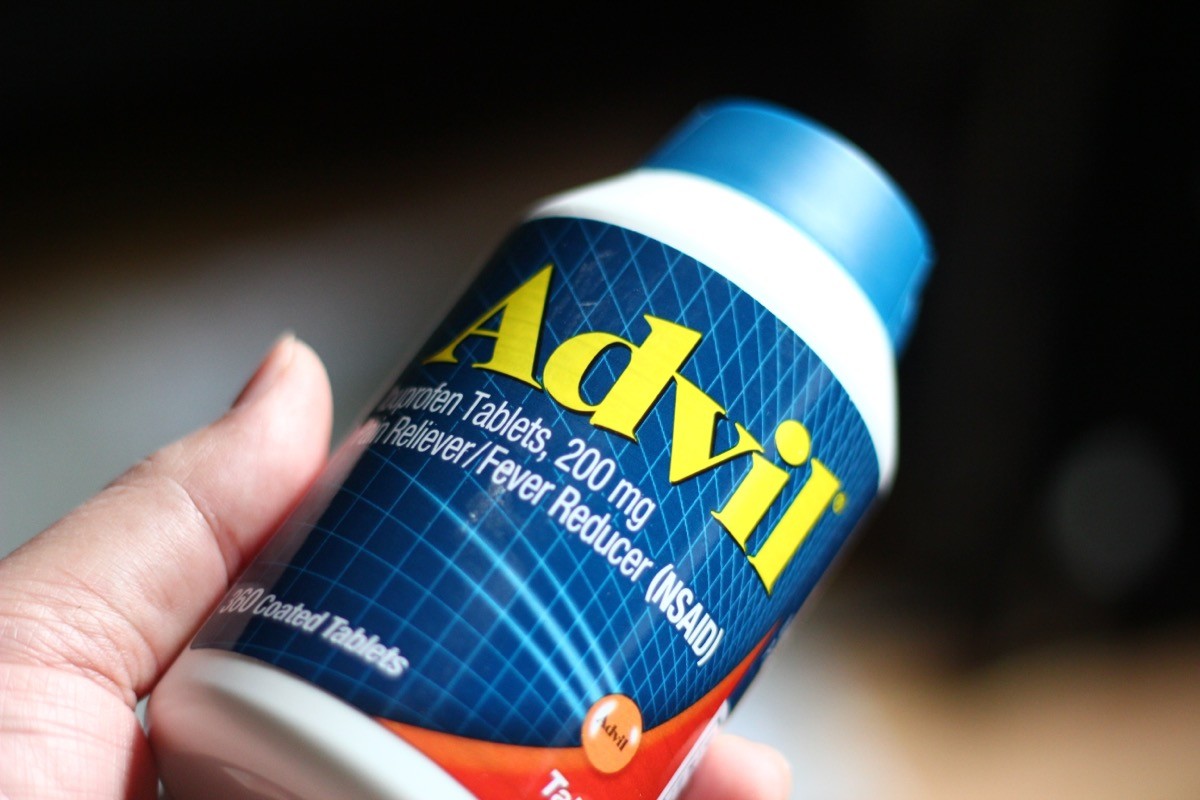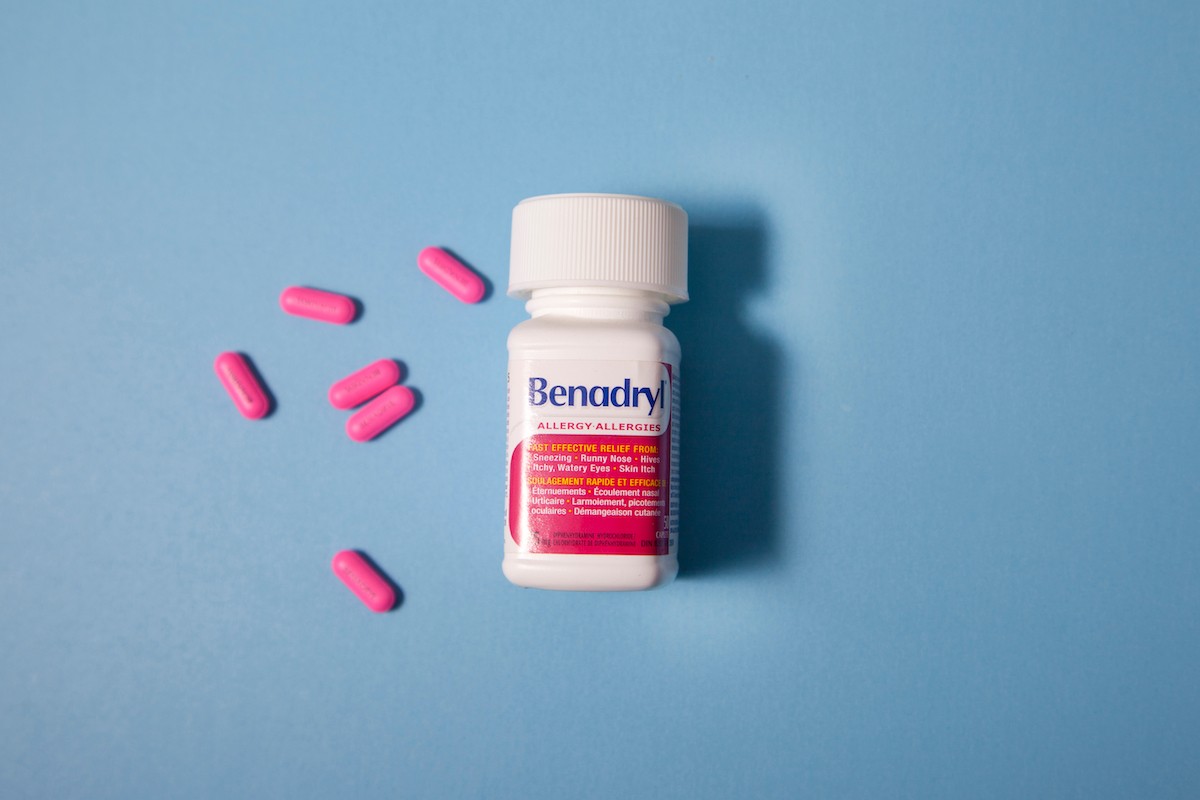If You’re Over 60, These 7 Drug Combinations Can Be Especially Dangerous, Doctors Say
Giving your doctor your full list of meds could literally save your life.

If your doctor has prescribed medication, it’s because they believe the benefits outweigh the risks. However, they can only make this calculation accurately if your medical team is aware of the other drugs and supplements you’re taking—especially if you’re over 60. That’s because, according to a 2025 consumer report by Merck Manuals, 90 percent of older adults in America take at least one prescription drug, while 43 percent take at least five. Experts say these complex medication regimens can endanger seniors if they inadvertently take the wrong drug combinations.
Besides taking more meds compared to younger people, there are other reasons that the wrong prescription pairings could pose a serious problem for older adults, explains Sharon Batista, MD, a board-certified psychiatrist in private practice and an assistant clinical professor of psychiatry at Mount Sinai Hospital: “Seniors are particularly vulnerable to drug interactions due to age-related changes in metabolism, decreased renal clearance, and heightened sensitivity to central nervous system effects.”
To that end, it’s always important to talk to your doctor before combining medications, especially if you’re managing a chronic condition or taking prescriptions from different providers. And, while this list is hardly exhaustive, there’s also no harm in knowing a handful of common drug combinations that are especially hazardous for people aged 60 and over.
RELATED: 8 Supplements You Should Never Take If You’re Over 60, Doctors Say.
1
Warfarin and NSAIDs

Martina Ambardjieva, MD, PhD, a urologist and clinical researcher working with Dr. Telx, says that around 70 percent of her patients are over the age of 60. “I regularly encounter medication-related complications in this population, often due to harmful drug combinations or self-medication,” she tells Best Life.
She says that one of the most common combinations she warns against is warfarin, used to prevent or treat blood clots, and over-the-counter non-steroidal anti-inflammatory drugs (NSAIDs) such as ibuprofen or naproxen. These are often used to relieve pain, reduce inflammation, or reduce a fever.
“Combining warfarin with common pain relievers like ibuprofen increases the risk of serious gastrointestinal or intracranial bleeding,” she explains. “NSAIDs impair platelet function and disrupt the stomach lining, while warfarin inhibits clotting, creating a dangerous synergy for internal bleeding.”
2
ACE Inhibitors and Potassium-Sparing Diuretics

Olalekan Otulana, MBCHB, a UK-based general practitioner and physician at Cassioburt Court, warns against pairing angiotensin-converting enzyme (ACE) inhibitors and potassium-sparing diuretics. These are both commonly used to treat hypertension.
“Both medications increase potassium levels, which in elderly patients can lead to hyperkalaemia. This is a potentially life-threatening condition causing irregular heart rhythms, muscle weakness, or even cardiac arrest in very severe cases,” he says.
RELATED: If You’re Over 60, These 6 OTC Medications Could Be Dangerous, Doctors Say.
3
Lithium and Diuretics

As people age, managing multiple health conditions often requires a delicate balance of medications. This is especially true for older adults who are prescribed lithium for mood disorders alongside diuretics such as hydrochlorothiazide for hypertension or heart failure.
While both medications can be effective on their own, their interaction can lead to serious complications. Understanding how these drugs affect the body—particularly in the context of age-related changes in kidney function—is crucial for preventing harmful outcomes and ensuring safe, effective treatment.
“Older adults often take diuretics for hypertension or heart failure, but these medications reduce renal clearance of lithium, significantly raising its serum concentration,” Batista explains. “This can precipitate lithium toxicity—manifesting as tremors, confusion, gait instability, gastrointestinal symptoms, and in severe cases, renal failure or seizures. Age-related decline in kidney function amplifies this risk, making close monitoring or alternative treatments essential.”
4
SSRIs and MAOIs

Finding the right antidepressant can help alleviate your depressive symptoms, but more isn’t necessarily better. Batista says that combining selective serotonin reuptake inhibitors (SSRIs) such as fluoxetine with Monoamine Oxidase Inhibitors (MAOIs) such as phenelzine can quickly land you in a medical crisis.
“This high-risk combination can trigger serotonin syndrome, which may be harder to recognize in older adults due to atypical presentations,” Batista says. “Symptoms like agitation, hypertension, hyperthermia, and tremor may be mistaken for infections or other acute illnesses. Fluoxetine’s long half-life further complicates transitions between medications, extending the risk window.”
5
Antipsychotics and Anticholinergics

According to Cleveland Clinic, anticholinergics such as diphenhydramine (i.e., Benadryl) have a wide range of applications, including the treatment of slow heartbeat, Parkinson’s disease, asthma, and more. However, patients should exercise caution if they also take any anti-psychotic medications.
“These medications both contribute to anticholinergic burden, which is strongly associated with cognitive decline and increased risk of dementia in older adults. When combined, they can cause acute confusion, urinary retention, constipation, and worsened memory,” Batista says, warning that the risk of delirium is particularly high in hospitalized or medically frail seniors.
RELATED: If You’re Over 65, Don’t Eat These 6 Foods, Doctors Say.
6
Benzodiazepines and Opioids

Another frequently discouraged drug combination involves benzodiazepines such as alprazolam, commonly used to calm the brain and nervous system, and opioids such as oxycodone, often used to treat pain.
“Both drug classes depress the central nervous system. In seniors, who already have decreased respiratory reserve and slower drug metabolism, this combination dramatically increases the risk of sedation, respiratory depression, and falls,” Batista warns. “Cognitive blunting and delirium are also more likely with this combination, even at moderate doses.”
7
Digoxin and Diuretics

Digoxin is used to treat congestive heart failure, usually in combination with a diuretic and an angiotensin-converting enzyme (ACE) inhibitor. However, Otulana says that this combination can be dangerous.
“Diuretics can cause potassium depletion, which increases the toxicity of digoxin,” he explains. “This may present as nausea, confusion, visual disturbances, or potentially life-threatening arrhythmias in older individuals whose electrolyte balance is more fragile.”
Otulana adds that this is just one example of why open communication with your doctor is so crucial, especially as you age: “Patients over 60 should have regular medication reviews, ideally with a pharmacist and a GP working together, to identify and prevent potentially harmful interactions before they cause harm.”





















